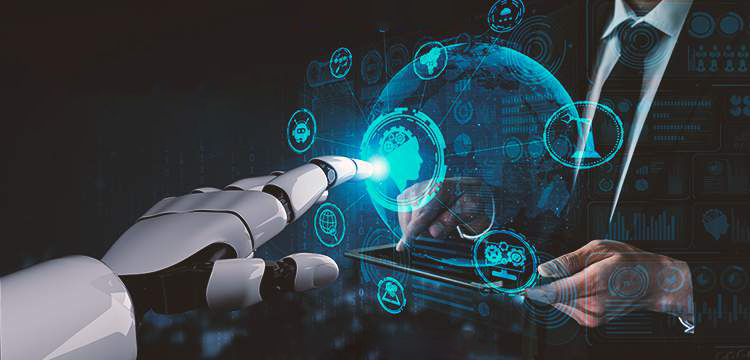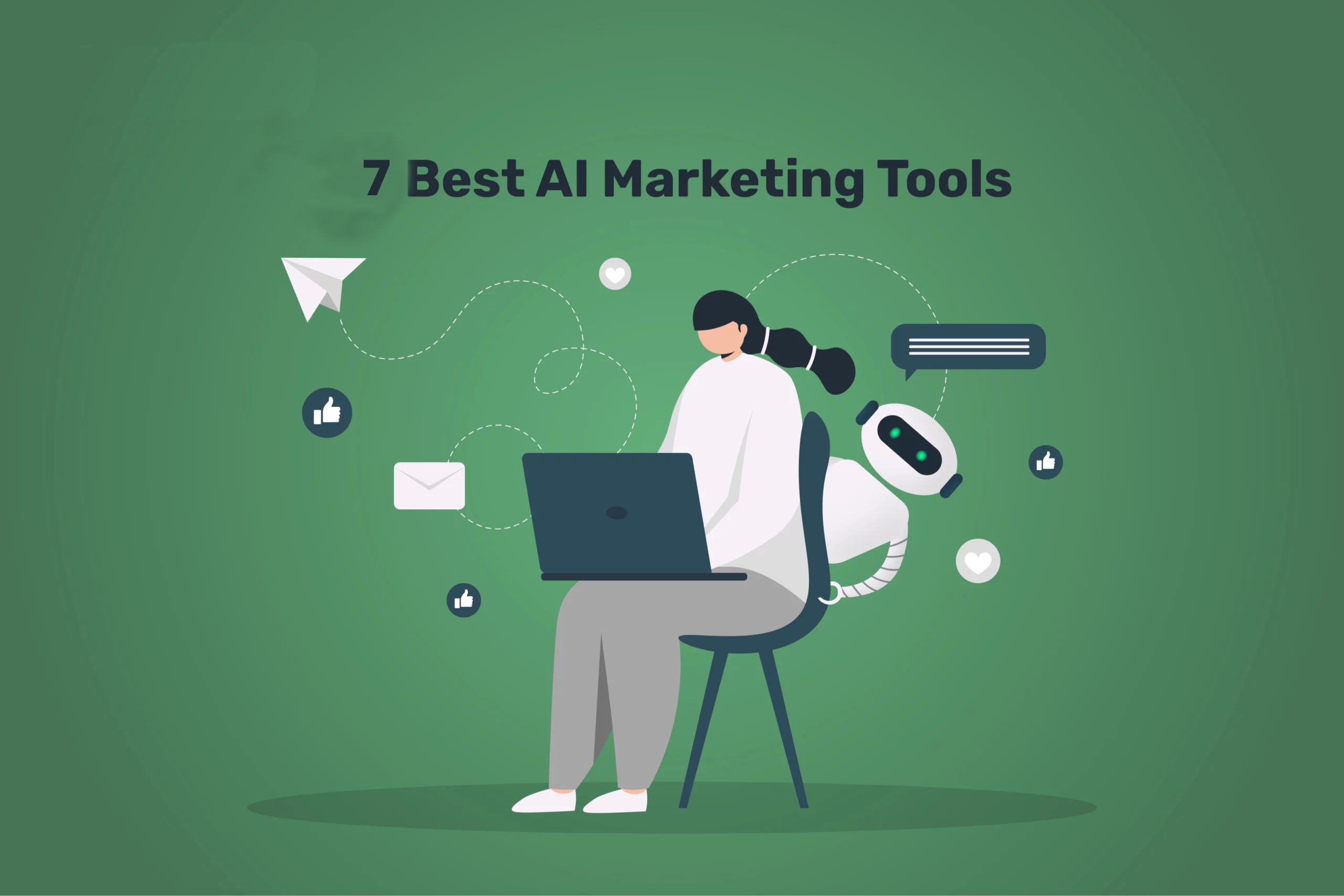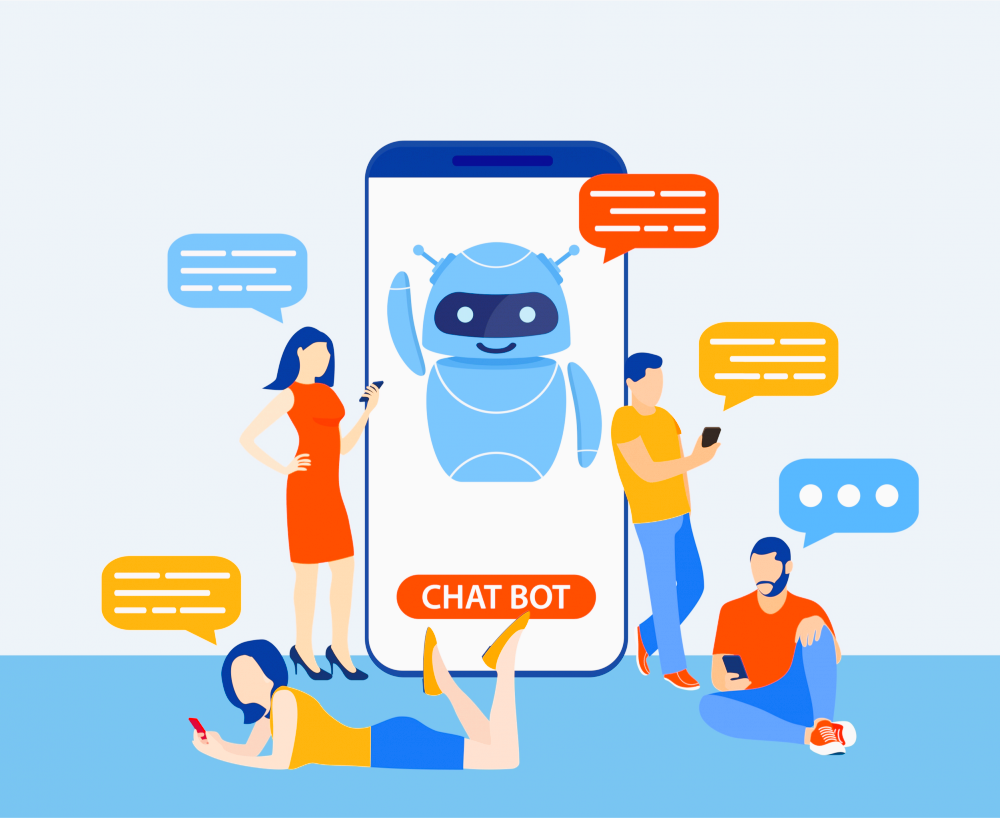Artificial Intelligence (AI) transforms businesses’ operations, driving efficiency, accuracy, and innovation. From automating routine tasks to making complex decisions, AI applications are proving valuable across various industries. Here are real-world Artificial Intelligence Examples in Business use AI today, providing practical benefits and reshaping industries.
Customer Service and Chatbots
AI-powered chatbots have become common in customer service, providing quick responses to customer queries and enhancing user experience. These virtual assistants are programmed to answer frequently asked questions, assist with basic troubleshooting, and guide customers to the correct information without needing a human agent. Companies like H&M, Sephora, and Bank of America use AI chatbots to manage customer inquiries, improve response times, and reduce operational costs. These chatbots are available 24/7, making them highly valuable for businesses that serve a global audience.
AI in customer service goes beyond chatbots. Advanced AI algorithms can analyze customer interactions to detect sentiment and emotions, which helps businesses provide more personalized responses. For instance, Zendesk uses AI to analyze support tickets, prioritizing issues that may need urgent attention.
Predictive Analytics for Sales and Marketing
In sales and marketing, AI analyzes large sets of customer data and predicts future trends. Predictive analytics helps businesses understand customer behavior, allowing them to personalize marketing campaigns and optimize their sales strategies. For example, Amazon uses AI to recommend products to customers based on past purchases and browsing history. These recommendations have been proven to drive significant sales and increase customer satisfaction.
AI-driven marketing platforms like HubSpot and Salesforce use predictive analytics to segment audiences, customize messaging, and optimize ad targeting. This level of personalization allows businesses to reach the right audience with the right message, improving conversion rates and customer engagement.
Supply Chain Management and Inventory Control
AI is also widely used in supply chain management and inventory control. AI algorithms can analyze historical sales data, predict demand fluctuations, and optimize stock levels accordingly. Walmart and Unilever are examples of companies that use AI in supply chain management to ensure that products are stocked efficiently and that waste is reduced.

For instance, Walmart uses AI-driven robots to scan shelves and monitor inventory levels in real time. This allows the company to identify low-stock items and automate restocking processes, ensuring products are always available for customers. This application of AI increases efficiency, reduces human error, and lowers operating costs.
Human Resource Management and Talent Acquisition
AI has also found a place in human resources (HR), especially in recruitment. Traditional hiring methods often involve sifting through hundreds of resumes, which can be time-consuming. AI-powered recruitment platforms, like LinkedIn Recruiter and HireVue, help streamline the process by using algorithms to screen resumes, match job requirements with candidates’ skills, and predict which candidates will likely be the best fit for the job.
In addition to recruitment, AI is used in employee engagement and retention. Platforms like Microsoft’s Workplace Analytics analyze employee activity and interactions to provide insights into productivity and collaboration patterns. These insights help HR teams understand the workforce’s overall health, enabling them to make data-driven decisions about engagement and retention strategies.
Fraud Detection in Financial Services
The financial sector has been one of the earliest adopters of AI for fraud detection. Banks and financial institutions use AI to monitor real-time transactions and detect suspicious activities. For instance, PayPal uses machine learning algorithms to analyze transaction data and flag potential fraud based on unusual patterns. This helps the company protect its customers from fraud and minimize financial losses.
JPMorgan Chase and American Express also use AI in fraud detection to monitor millions of transactions daily. The algorithms analyze location, transaction type, and amount to detect anomalies. If a transaction seems unusual, it’s flagged for further review. This proactive approach to fraud detection allows financial institutions to respond to threats quickly and protect their customers.
Personalized Shopping Experiences in Retail
AI is helping retailers offer more personalized shopping experiences. E-commerce platforms use machine learning algorithms to recommend products based on user’s previous purchases, browsing history, and preferences. Amazon and eBay use AI to create personalized recommendations for customers, enhancing the shopping experience and boosting sales.
Brick-and-mortar stores are also using AI to improve customer experience. For example, Sephora uses AI-driven virtual try-ons, where customers can see how makeup products will look on them before making a purchase. This innovative approach helps customers make better decisions, reducing return rates and increasing customer satisfaction.
Quality Control in Manufacturing
In manufacturing, AI is used for quality control, ensuring products meet the required standards. Siemens and GE use machine learning algorithms to analyze data from production lines and detect defects early. AI-powered visual inspection systems can identify product issues at high speed and with great accuracy, which helps companies maintain high-quality standards without slowing down production.
Another example is Tesla, which uses AI to monitor and control the quality of its vehicles during assembly. AI algorithms analyze data from various stages of production, ensuring that each component meets the company’s quality standards. This helps prevent costly recalls and improves overall customer satisfaction.
Financial Forecasting and Risk Management

AI plays a crucial role in financial forecasting and risk management, especially for businesses in sectors like insurance, banking, and investment. AI algorithms can analyze historical financial data, market trends, and economic indicators to make accurate financial predictions. For instance, Goldman Sachs uses AI for investment management, analyzing vast amounts of data to identify profitable investment opportunities.
Insurance companies like Progressive use AI to assess risk and set premium rates. Machine learning models analyze factors like age, driving history, and credit score to determine the likelihood of an insurance claim, allowing companies to price policies more accurately.
Automated Content Creation and Curation
AI is also used in content creation and curation. Platforms like Wordsmith and Quill use natural language generation (NLG) to create data-driven reports, summaries, and news articles. Media companies such as Forbes and The Washington Post use AI to produce content automatically, saving time and reducing costs.
Artificial Intelligence Examples in Business
For businesses with an online presence, AI-driven content curation tools like Curata and UpContent help gather and organize relevant content from the web. This lets companies update their websites and social media channels with fresh and appropriate information, improving engagement with their audience.
Conclusion
The examples of artificial intelligence in business are vast and diverse, covering nearly every industry. AI is reshaping business models, improving operational efficiency, and enabling better decision-making. As AI technology evolves, it will open up even more opportunities for businesses to innovate and serve customers in new and meaningful ways. The potential benefits for companies willing to invest in AI are substantial from improved customer service to enhanced operational efficiency and increased profitability.
By strategically adopting AI, businesses can stay competitive, adapt to changing market conditions, and unlock new customer value.





